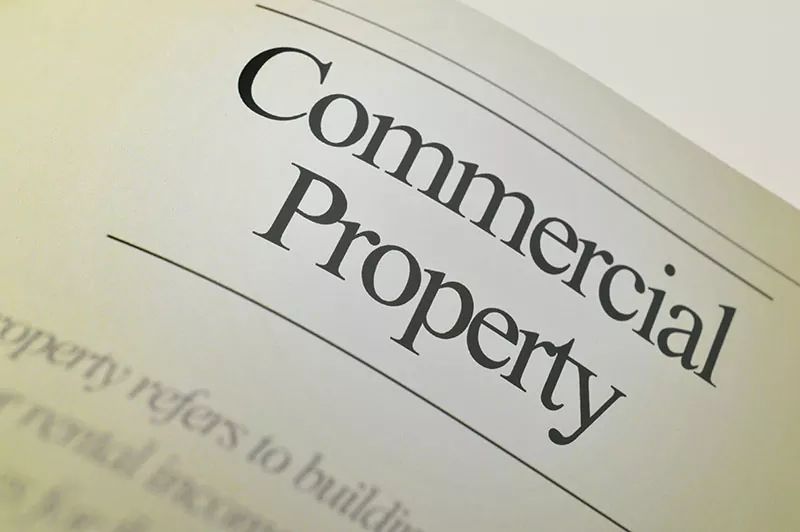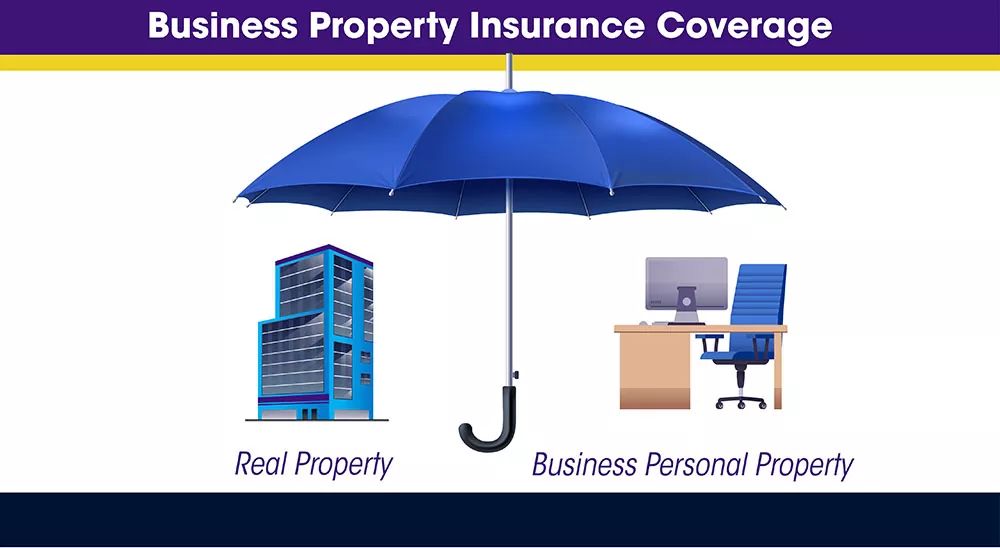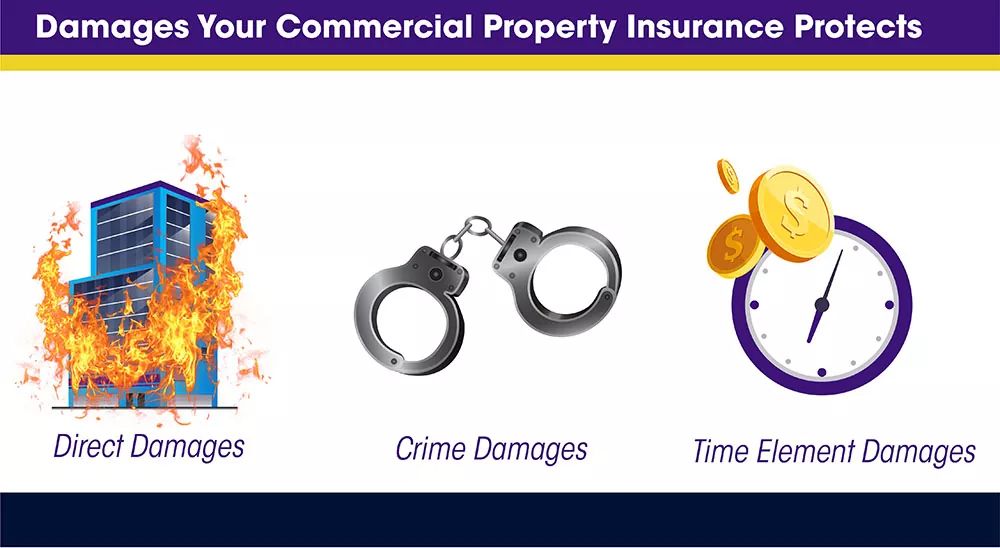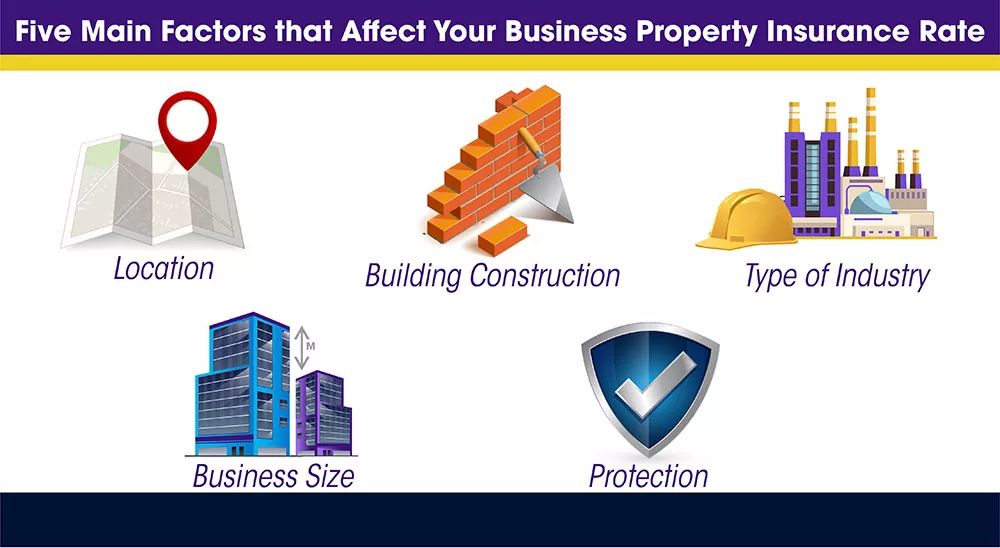
Commercial Property Insurance Guide
Protecting your business is key to a successful future. With this commercial property insurance guide, you’ll know the basics of keeping your firm’s assets safe and sound!
Whether you’re starting a new business or your firm has a lot of time in the industry, it’s vital to know the importance of insuring your building. After all, we can’t ignore the fact that accidents happen. That’s why you need to know the basics of protecting your business from these misfortunes!
Also, if you want to keep on reading on how to protect your business, we invite you to read the top benefits of commercial vehicle insurance!
COMMERCIAL PROPERTY INSURANCE 101: WHAT IS COMMERCIAL PROPERTY INSURANCE?

Many business proprietors often ask themselves the following question:
What type of insurance do I need for a commercial building?
First, you need to know that two policy types can protect your business: general liability insurance and commercial property insurance. While general liability protects your firm against legal costs, property insurance covers your building as well as your belongings.
In other words, business property insurance protects your company’s physical assets against all sorts of threats and unexpected damages. Among these threats, we have:
- Heavy rainstorms and thunderstorms.
- Fires
- Thefts
- Explosions
- Vandalism
- Broken pipes
This type of insurance applies to all kinds of business owners. That is to say, it doesn’t matter if you own your firm’s building or if you rent it.
In our case, the people that seek most of our business property insurance are general contractors, accounting companies, marketing agencies, real estate agencies, and so on.
Additionally, this type of policy can even cover losses that come from property damage, such as income losses.
COMMERCIAL PROPERTY INSURANCE GUIDE: WHAT DOES A GOOD BUSINESS PROPERTY INSURANCE COVER ?

Good commercial property insurance covers anything that’s considered property to your business. This can go from your building, everything inside it, and even outside of it.
Some of the most common business assets are:
- Your business’s building or a physical establishment
- Furniture such as tables, desks, and chairs
- Office equipment such as phone systems and computers
- Building fixtures such as sprinkler systems
- Processing equipment
- Inventory in stock
- Documents
- Exterior signs
- Satellite dishes
- Fences
As you can see, all these elements are either real property or business personal property. Also, keep in mind that it doesn’t matter if your enterprise’s property is either owned or leased; you’ll still count on protection.
Lastly, keep in mind that this policy won’t cover money, animals, land, and any sort of crops.
WHAT DAMAGES OR RISKS DOES COMMERCIAL PROPERTY INSURANCE PROTECT AGAINST ?

Following with our commercial property insurance guide, we’ll go over which types of damages it protects your business.
Because this type of policy saves you from any financial losses that come from property damage, there are many types of property losses you should know about.
These are the three types of damages a business property policy might protect you against:
- Direct damage
- Crime damages
- Time element damages
Allow us to tell you a little about each of these
DIRECT DAMAGE
Usually, this is the type of damage proprietors tend to think about. This coverage includes the repair or replacement costs of any physical property that was destroyed or damaged.
In most cases, this policy protects you against all types of accidental risks unless it’s explicitly stated otherwise. Additionally, when it comes to flood and earthquake protection, business owners have that additional coverage via an endorsement.
Lastly, there are cases in which proprietors that have a home-based business think that they don’t need this type of policy since they have their home property insurance. However, bear in mind that home insurance won’t cover any business-related property.
CRIME DAMAGES
Theft is among the most common types of crime damage covered by good business property insurance. When counting on this policy, your property is safe, whether some damages or steals your equipment.
TIME ELEMENT DAMAGES
According to the International Risk Management Institute, time element insurance is a term used to refer to the coverage for losses that come from the lack of usage from damaged property.
Just as the name implies, these damages arise because of their time-tied nature. In other words, the business loss that occurs from how long it takes to fix the damaged property.
There are two types of coverage for time-element: extra expense coverage and business income. Business income covers any income when suspending operations due to property damage. On the other hand, extra expense covers additional costs that come from the time you weren’t able to use your property because of its state.
HOW TO DETERMINE COMMERCIAL PROPERTY INSURANCE RATE?

Lastly, in our commercial property insurance guide, we’ll go over how much your policy rate will be.
Generally speaking, commercial property insurance cost depends on many factors. These factors often include the value of the building and the value of all the assets of your business.
Each business is different when talking about insurance. Some can have additional factors that influence their insurance cost, while others may not. For this reason, you need to know the essential elements that affect your insurance rate:
These are the main factors that determine your commercial property insurance rate:
- Location
- Building construction
- Type of industry
- Business size
- Protection
- Risk exposure
Let’s go over each of these factors:
LOCATION
Your business’s site is essential when it comes to insurance. This is because natural phenomena can affect your business, depending on where it’s located. In other words, the higher the risk of floods and tornadoes are in your area, the higher the policy rate.
In other words, this type of policy can have a lower rate when your business is in a city with excellent protection against threats like fires. On the other hand, companies that are outside of a city may have a higher insurance rate.
Also, the value of the place where you are located and under which law it is used can affect the premiums you pay.
Lastly, take in mind the criminal activity from your area. Is there a lot of crime surrounding your firm? If that’s so, then your premium will cost more.
BUILDING CONSTRUCTION
Just like your firm’s location, the material in which your building is built on can influence a lot in your rate as well. If your building is made of resistant materials, such as masonry and steel, then it’s very likely that your insurance cost will be low.
However, if your building has combustible materials, like gypsum boards, then your rate will be higher. There are exceptions in which flammable materials are fire-resistant. For instance, woods that have been treated with fire retardants are safe to use.
BUSINESS SIZE
Just like your building’s construction material, your business’s size impacts your premium cost. If you count on a large building for your company, then it’s likely that you’ll pay a higher price.
TYPE OF INDUSTRY
Believe it or not, your business’s occupancy can make your insurance cost higher or lower. As we stated beforehand, the higher the risk of accidents a company may have, the higher your premium will be.
For example, a lawyer’s office often has much less risk compared to a car repair shop or even a restaurant.
That’s why the lawyer will receive a lower rate compared to the car repair shop.
Also, keep in mind that if your business is in a multiple-tenant building, then more factors might affect your premium. After all, if another company performs any risky activities that might harm the entire building, then your policy cost may be higher.
PROTECTION
Lastly, policies often take into account how well-equipped your firm has against any risks, such as alarm systems. This also includes how far your business is from a fire hydrant or your local fire station.
